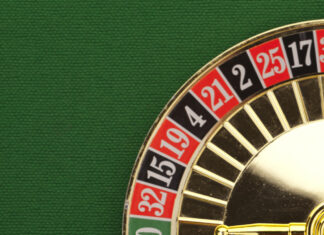
Relationship between ROK and RVK
The RVK, which came into force in 2015, partly covers the same subject matter as the ROK. For example, both advertising codes contain similar provisions regarding unfair advertising, responsible participation, cooperation of participants in advertising and vulnerable groups. It is not surprising that these advertising codes contain similar provisions, since they are both based on the same legal framework[1]. Yet there are also important differences. The provisions of the ROK are often more detailed and go further than the RVK, as explained below.
The ROK provides for the situation that an advertisement relates to both online games of chance and other games of chance. In this situation, both the ROK and the RVK apply. In addition, several ROK provisions also always apply to other games of chance. These are the above-mentioned additional provisions[2] and specific provisions with respect to the prohibition of reaching an audience of more than 25% consisting of minors and young adults.
A number of remarkable ROK provisions highlighted
Bonuses (paragraph 5)
- The use of bonuses in advertising for online games of chance in broadcasting services and outdoor media is prohibited (article 5.1).
- The maximum amount of the welcome bonus depends on the amount of the first deposit (article 5.4).
- Young adults (18-24 years) may not use bonuses (article 5.9).
Channels: Restraint (paragraph 8)
- Per commercial break, a maximum of three advertising messages of 30 seconds each may be disseminated for online games of chance and for other so-called limited games of chance together (article 8.1, under a).
- Twin spots (advertising in two parts with a main commercial and tag-on) in an advertising block are not permitted (article 8.1, under b).
- Data subjects/players must be able to unsubscribe from all individual advertising messages in one go by means of, for example, a dashboard (article 8.2).
- Advertising in or around online games is prohibited (article 8.4).
Channels: Vulnerable Groups of Persons (paragraph 9).
- The TV advertising watershed is extended to the Internet: between 6 a.m. and 9 p.m. stand-alone video advertising messages may not be broadcast via online media (article 9.1).
- With respect to individual marketing, indicators and/or filters must be used wherever possible to exclude vulnerable groups of persons (e.g., in advertising on social media) (article 9.9).
Position in the chain (paragraph 12)
- The provider of online games of chance shall contractually impose its obligations under the ROK on parties who advertise or arrange for the advertising of its online games of chance.
Effective date and transitional period
The ROK came into force on 15 December 2021 and is initially valid until 1 March 2023. For certain articles there is a transition period until 1 February 2022, namely for:
- the obligation, as an online gambling provider, to ensure that young adults do not make use of bonuses;
- the ban on broadcasting video advertisements for online games of chance via online media between 6 a.m. and 9 p.m.;
- the limitation of maximum three TV commercials of maximum 30 seconds per commercial break; and
- specific provisions on the prohibition of reaching an audience of more than 25% of minors and young adults.
Concluding remarks
The establishment of the ROK has been subject to much debate and the discussion on advertising for online games of chance continues. The subject is socially and politically sensitive. With the ROK, market parties and the SRC have made an attempt to address societal concerns.
[1] These are the Betting and Gambling Act, the Betting and Gambling Advertising Decree (Besluit werving, reclame en verslavingspreventie kansspelen), the Betting and Gambling Advertising Regulations (Regeling werving, reclame en verslavingspreventie kansspelen) and, of course, the Dutch Advertising Code (Nederlandse Reclame Code).
[2] The ban on broadcasting video advertisements for online games of chance via online media between 6 a.m. and 9 p.m. and the limitation of maximum three TV commercials of maximum 30 seconds per commercial break.









